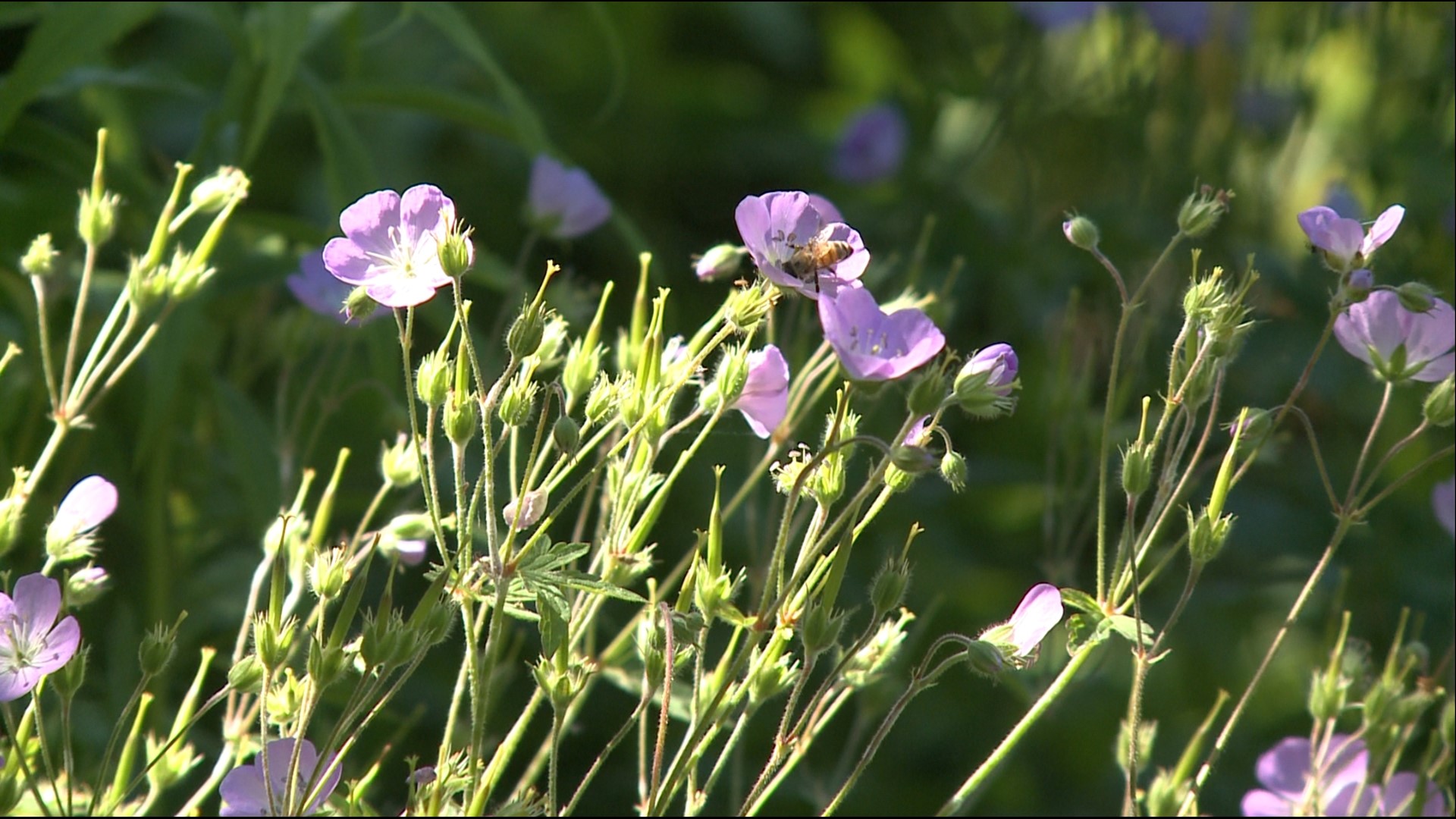FALMOUTH, Maine — Birds eat bugs, and bugs need native plants to survive, which is why Maine Audubon has created a program called Bringing Nature Home to encourage people to grow native plants.
Gardening with Gutner visited Maine Audubon's Gilsland Farm in Falmouth and spoke with Andrew Tufts, the program manager for Bringing Nature Home.
"Natives play a huge role in our landscapes. And today as Maine Audubon is known for birds, there have been historic levels of bird die-offs and insect die-offs of late, and a large part of that is due to habitat loss and food loss – habitat being the plants, and food being the insects that eat those plants," Tufts said.
According to Maine Audubon, wild landscapes are replaced with grass lawns, nonnative perennials, and shrubs that support very few species of wildlife. They state that the United States has planted over 62,500 square miles, some 40 million acres, of lawn. Even a modest increase in the native plants in the suburbs would greatly increase the diversity of insects, birds, and other animals.
Tufts showed some examples of Maine natives from the Maine Audubon greenhouse and their education garden.
Maine Natives:
- Blue Flag Iris can be found in wet areas, along river and stream banks, or on lake edges
- Anemone is a ground cover, likes partial sun or partial shade, grows in a mass
- Coreopsis provides height for a diverse structure in the garden
- Clematis virginiana is Maine's only native clematis, and can be trained to grow on structures
- Viburnum has beautiful white blossoms, loved by bees, berries emerge to feed birds
- Black Cherry – not for human consumption, host to many different types of caterpillars, which are one of the biggest food sources for birds
Go to Maine Audubon's website, mainenativeplants.org, where you can learn what to plant, where to plant it, what pollinators it attracts, and much more.
More Gardening with Gutner:

